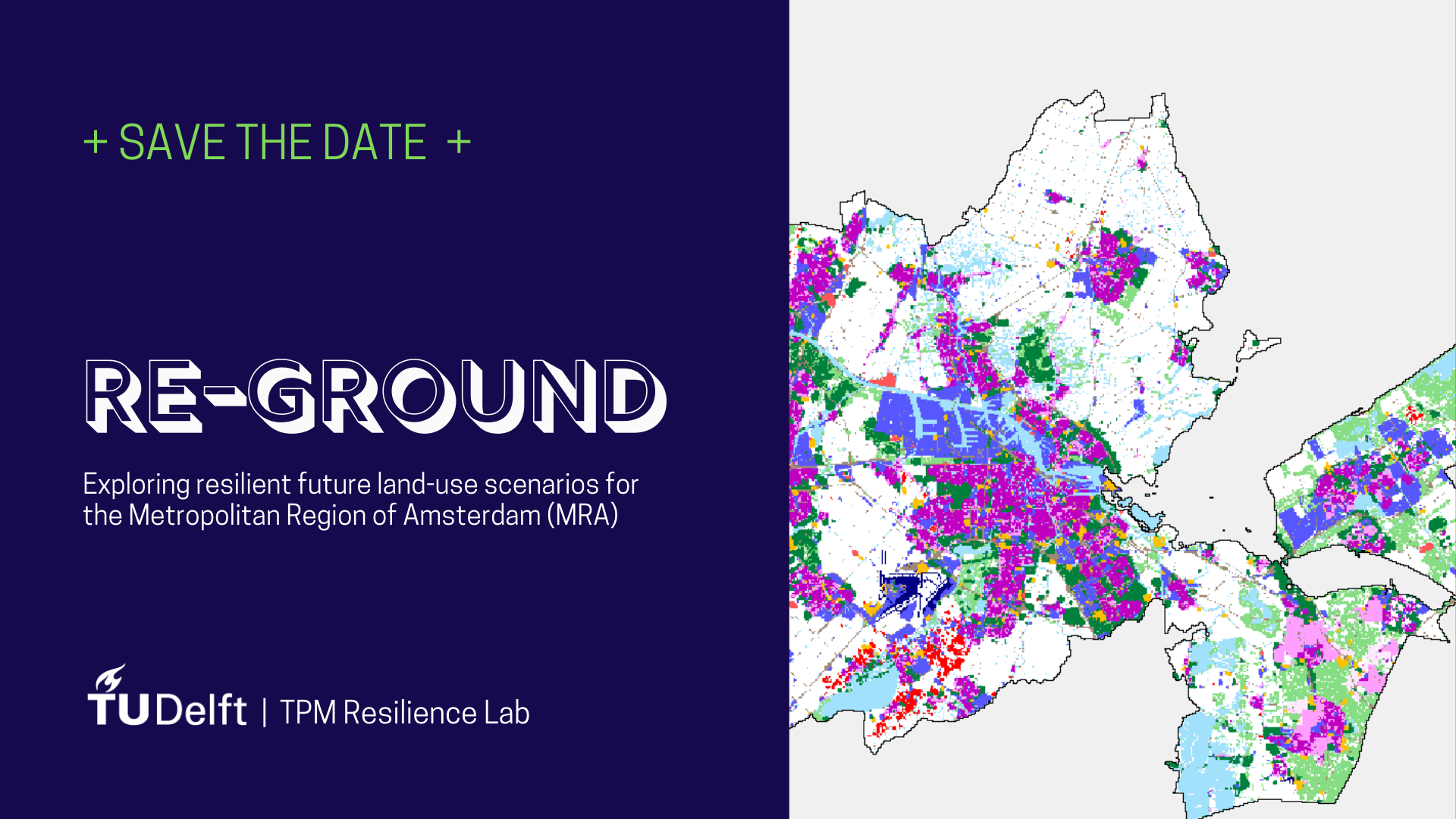RE-GROUND: Exploring resilient future land-use scenarios for the Metropolitan Region of Amsterdam

By 2050, the Metropolitan Region of Amsterdam (MRA) aims to become a prominent economic force in the Netherlands and Western Europe, necessitating the addition of thousands of businesses, increased housing, and expanded infrastructure to support its projected population of nearly 3 million. These investments face climate risks, characterized by uncertainty, underscoring the need for proactive and risk-informed land-use planning.
RE-GROUND, a participatory visioning workshop led by me as part of the Resilience Lab at TU Delft in collaboration with Research Institute for Knowledge Systems (RIKS) Netherlands. We explored future land-use scenarios for the MRA in 2050. We developed a comprehensive land-use model to simulate growth, integrating future space demands, and policies. The model facilitated visualization of spatial impacts across the MRA, identifying suitable regions for investment and informing evidence-based urban planning decisions.
The consultation aimed to: (1) Gather input on the land-use modeling framework, discussing its functioning and soliciting feedback for improvement; (2) Align the framework with the MRA's urbanization and climate agenda; (3) Translate inputs into quantitative spatial projections; (4) Explore growth variations for the MRA.
During the online workshops, senior planning practitioners provided inputs on the land-use model and various planning policies for the MRA, critically assessing existing visions and proposing new ideas. We designed three conceptual scenarios drawing from planning trends, future visions, and regional risks outlined in policy documents. These scenarios were further informed by interviews with 20 practitioners specializing in development, planning, and climate risks (Refer: Publication 1, Publication 2). Each scenario included a description, concept map, and sectoral illustration to visualize growth patterns. Participants engaged through a virtual whiteboard, offering their responses, reactions, critiques, improvements, and suggestions for specific planning and sectoral inputs. Discussions spanned topics such as sectoral strategies, water management, landscape policies, infrastructure development, climate adaptation, and zoning.

The consultation was conducted online via Zoom due to Covid-19 restrictions. Participants included representatives from Future Proof Development/City of Amsterdam, Metropolitan Region of Amsterdam, Department of Landscape and Space, PBL, Hoogheemraadschap Rijnland, PBL (Spatial Modeling and Scenarios), VU Amsterdam, Object Vision B.V., and Royal Haskoning DHV. A similar land-use modelis under development for the Mumbai Metropolitan Region (MMR).
